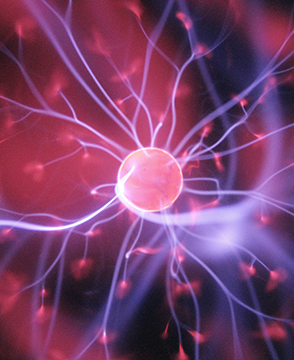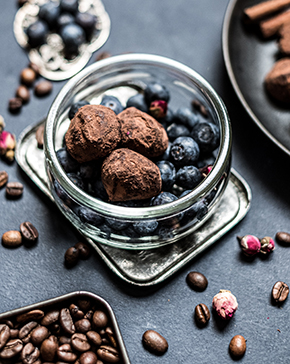 Have you ever wondered exactly what classifies a substance as a Nootropic? Or pondered the difference between plant based Nootropic supplements and synthetically created “smart pills”?
Have you ever wondered exactly what classifies a substance as a Nootropic? Or pondered the difference between plant based Nootropic supplements and synthetically created “smart pills”?
If so, you’ve come to the right place because in today’s post we’re going to be answering the question “What are herbal Nootropics?”, taking a look at what Nootropics are all about, and the many ways that they can potentially benefit our cognitive abilities, memory, focus, energy, mood and overall brain health!
One thing that surprised me when I started delving into the world of Nootropics was that they’ve actually been around for quite a while.
What Makes A Dietary Supplement Qualify As A Nootropic?
What Are The Characteristics Of A Nootropic?
- Nootropics Enhance Learning & Memory
- Nootropics Support Interhemispheric Transfer & Synchronization
- Nootropics Are Non-Stimulant & Non-Sedative
- Nootropics Strengthen The Subcortical Processes
- Nootropics Enhance Cerebral Resistance
- Nootropics Are Non-Toxic Virtually Free of Side-Effects & Are Non-Toxic Even At High Dosages
… And that pretty much sums up what you should expect out of a Nootropic…
What’s Different About Herbal Nootropics?
Dietary supplements, also known as “herbal supplements” are natural occurring plant compounds, or blends of these compounds that intend to provide supplementation – giving the body and mind nutrients that they can use to support optimal functioning.
These plant extracts and such are able to deliver these powerful nutrients at dosages that are very hard to come by via diet alone, so you can use them to supplement your diet. (Of course eating these proven brain health foods is another great way to get nutrients that your brain is craving!)
Other types of dietary supplement include things like multivitamins that deliver a wide spectrum of vitamins and minerals, or things like fish oil capsules that are high in Omega-3 fatty acids.
Nootropic supplements intend to boost your brain health and functioning by providing nutrients that support and enhance it’s normal healthy functioning.
27 Potential Benefits Of Herbal Nootropics
There are numerous ways by which these supplements can increase brain activity. Some of these include:
* Enables the brain to respond to external stimuli such as tones, sounds and smells.
* Helps prevent or alleviate the onset of Alzheimer’s disease.
* Promotes healthy blood flow to all parts of the body including brain cells.
* Boosts the production of neurotransmitters such as dopamine and noradrenalin.
* Enhances the function of acetylcholine receptors on neurons.
* Reduces symptoms of depression and dementia.
* Regulates blood pressure and glucose levels
* Supplements the immune system and enhances overall immune system functioning
* Helps reduce stress and anxiety levels
* Supplements brain activity and improves concentration ability
* Supplements the production of gamma amino butyric acid ( GABA)
* Suppresses multiple sclerosis and other psychological disorders
* Improves mood swings and promotes happiness and joy
* Boosts concentration, focus, memory and mental agility
* Supplements the production of serotonin, the body’s neurotransmitter
* Supplements the production of norepinephrine and histamine
* Boosts oxygen intake to the brain
* Provides essential vitamins and minerals that are normally derived from food sources and the soil
* Provides vitamin and mineral supplementation to the body
* Improves skin and hair appearance
* Improves eye function and visual acuity and clarity
* Boosts the levels of energy and stamina
* Supplements muscle mass and functions
* Supplements muscle growth and development
* Supplements protein synthesis to enable protein synthesis and repair of cell and tissue damage caused by microorganisms and chemicals and enzymes and
* Helps prevent and reduce seizures and angina and
* Reduces the severity and duration of arthritis.
A Few Of Our Fave Nootropic Supplement Ingredients:
Ginkgo biloba
Ginkgo Biloba is a truly incredible plant capable of providing numerous potential brain health benefits. The extract used in supplements comes from the leaves of the maidenhair tree which is native to China and which has been used for centuries for its numerous health benefits. Among these benefits the most important ones are anti-inflammatory, and anti-oxidant. Gingko also has neuro-protective effects, which makes it a powerful option for helping to reduce the symptoms of depression and schizophrenia.
One of Ginkgo’s most impressive features is its ability to alter brain chemistry by increasing levels of melatonin, a hormone that regulates sleep and circadian rhythms. Additionally it helps support brain health by increasing the efficiency of brain cells by depleting levels of glycine and encourages the growth and development of healthy brain cells by preventing the cholesterol from becoming rancid.
Ginkgo extract increases blood flow, enhances the oxygenation capacity of brain cells, and prevents the accumulation of acetylcholine (the neurotransmitter responsible for causing neurological activity) in the myelin sheath of the nervous system. Ginkgo biloba extract also contains flavonoids, terpenoids, and trophic influences.
Bilberry
Bilberry increases brain plasticity and is an anti-inflammatory that prevents the degeneration of brain cells. It’s also an antioxidant that protects the body from harmful free radicals and is even capable of healing tissue damage caused by free radicals. Additionally Bilberry is a natural antihistamine which keeps blood glucose levels under control and reduces allergic reactions. that prevents the degeneration of brain cells.
Bacopa monnieri
Bacopa monnieri is a small tree with aromatic flowers. The bark of this tree contains noxiousants that act on neurons and other nerve tissues to improve concentration and mood. When taken as an herbal supplement, it helps enhance memory and cognitive function, and improve attention and concentration. In addition, it inhibits excitatory synaptic activity in the brain, thereby improving GABAergic function.
Bacopa monnieri contains bacosides that prevent lipid peridoxation of acetylcholine. This is essential as acetylcholine is believed to be involved in transmitter dysfunction and memory loss. The extract protects against lipid peridoxation by preventing its entrance into the nerve cells, preventing or reducing the release of acetylcholine. This is important because acetylcholine is thought to be a neurotransmitter in the brain and may thus be involved in mood disorders such as depression, schizophrenia, and bipolar disorder. The antioxidant content of bacopa monnieri prevents oxidative stress from damaging cellular DNA and thus preserves cellular DNA.
Flowering vine of bacopa monnieri also contains phytonutrients that protect and preserve the nervous tissue. Among these are flavonoids and terpenoids that have antioxidant activities. The two chemicals combine to improve the intracellular antioxidant effect of flavonoids. Terpenoids help prevent lipid peridoxation of acetylcholine in the presence of other lipids such as cholesterol. The combination of these two chemicals results in a powerful antioxidant effect.
Studies also show that bacopa monnieri protects against the development of nitric oxide in the presence of L-theanine. This chemical is believed to function through enhancing the levels of neurotransmitter glutamate that helps maintain the plasticity of brain cells. Other research found that the herb increases multiple kinds of brain activity including sensory processing, attention, memory, and linguistic functions.
More Top Herbal Ingredients Found In Nootropics:
But that’s not all, there are a ton of different botanical extracts that researchers believe can work as Nootropics, including:
- Alpha glycerylphosphorylcholine (Alpha GPC)
- Ashwagandha
- Cat’s claw
- Citicoline
- DHA complex
- Huperzine A
- N-Acetyl-L-Tyrosine
- L-Theanine
- Lion’s Mane mushroom
- Maritime pine bark
- Oat straw
- Phosphatidylserine
- Passionflower
- Rhodiola Rosea
These ingredients are often paired with critically important B Vitamins such as:
- Vitamin B5
- Vitamin B6
- Vitamin B9
- Vitamin B12
How To Pick The Best Nootropic Supplement For You?
As you can see there are many amazing natural Nootropic options available to help you optimize your brain health and cognitive function.
That said, finding the best Nootropic to fit your individual needs can prove challenging due to the sheer number of supplements on the market today.
We’ve been studying this market for years and have experimented with a wide range of popular ingredient and Nootropic stacks…
